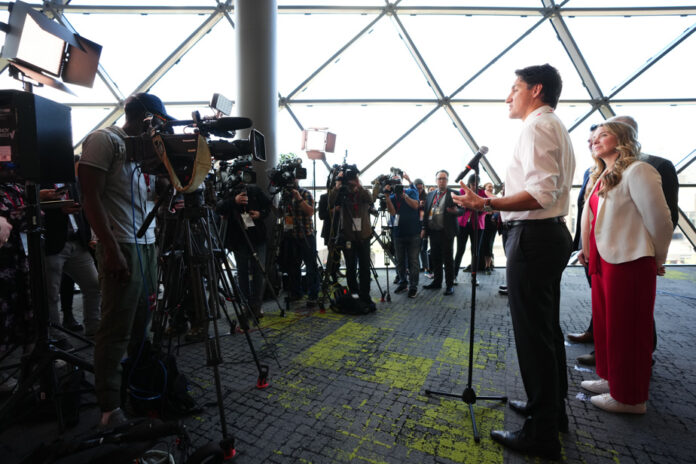(Ottawa) The Liberals are betting on culture to score points in Quebec in the next election. They are betting that Pierre Poilievre’s threats against CBC/Radio-Canada and his doubts about Liberal measures aimed at preserving cultural specificity will irritate the Quebec electorate.
Minister Mélanie Joly delivered this analysis during a strategy session that took place Friday at the Liberal biennial convention, in response to a question from a defeated candidate in 2019, Linda Lapointe. She argued that the next Liberal election proposal needed to be more “nationalist” to be competitive.
“The CBC issue will probably be as big as it was in 2015 [where the Liberals promised a massive reinvestment of $675 million],” said the co-director of the 2021 national campaign. And Pierre Poilievre’s proposal to cut food at CBC and spare Radio-Canada, “it doesn’t work,” she added.
Other potential winners, according to the Montreal MP: “Bill C-11” on the modernization of the Broadcasting Act, as well as Bill C-18, which aims to bring the giants of the web into line. “We worked with the cultural community on [these] bills,” explained Minister Mélanie Joly, without naming them.
In the case of C-11, leading players in Quebec’s cultural industry such as ADISQ and SOCAN applauded its adoption at the end of April. As for C-18, he portends a standoff with Facebook that the Minister of Canadian Heritage, Pablo Rodriguez, said he was more than ready to engage.
The Conservative Party has already indicated its intention to repeal C-11. A petition has been launched online to denounce its provisions, to protect the right of Canadians to be “free from the clutches of government censors” and to speak out against the attempt to “police and control speech”, among others.
“Pierre Poilievre brought the American model to Canada. He is going to talk about gatekeepers, globalist elites, freedom of expression. Our role will be to establish a clear contrast, to associate it [with the modus operandi of the Republicans in the United States] and to make people understand that we are the progressives,” Ms. Joly explained.
Overall, the panel titled “Thoughts on the 2021 Campaign” was – as the name suggests – more retrospective than forward-looking.
The two leaders’ debates were turning points.
At the end of the oratorical contest in English, support for the Bloc Québécois jumped by four percentage points, according to Geneviève Hinse, chief of staff of Justin Trudeau’s political lieutenant in Quebec, Pablo Rodriguez.
The exercise was marked by an intervention by moderator Shachi Kurl, who drew a parallel between the Act respecting the secularism of the state and racism in a question posed to Bloc leader Yves-François Blanchet.
TVA’s Face-to-Face benefited the Liberals, argued Mélanie Joly.
By bumbling about her gun control agenda, Erin O’Toole provided the Liberals with an opportunity to impose their agenda. Stuck between rurality and urbanity, the conservative leader ended up doing an about-face.
But the damage was done, and the Liberals reaped the rewards in key ridings in Montreal and Toronto, said Dan Arnold, the party’s pollster.
The conversion of Chief O’Toole had not convinced PolySeSouvient. This time it’s the unconvincing Bill C-21, watered down due to NDP pressure. And the Quebec wing wonders if the relaxations will harm the next election.


















